Understanding the Foundations of Dynamic Chronic Disease Management
As chronic conditions become increasingly prevalent across aging populations and diverse communities, the healthcare system is evolving to provide more adaptable, person-centered care models. This article explores how chronic care programs are shifting from traditional disease management to flexible, goal-oriented systems designed to meet individuals' changing needs. By examining core principles, supporting frameworks, technological innovations, and community integration, we highlight the ongoing transformation aimed at improving health outcomes, patient satisfaction, and system efficiency.
Core Principles of Adaptive Chronic Care Programs
Chronic care management (CCM) programs are built on fundamental principles aimed at delivering sustainable, personalized care for individuals with multiple chronic conditions. These programs focus on providing long-term, proactive support that centers around the patient's specific needs and goals.
A primary aspect of these programs is comprehensive assessment and personalized care planning. Healthcare teams evaluate each patient’s unique health profile, considering medical conditions, lifestyle, and personal preferences. This evaluation results in tailored care plans that guide ongoing treatment, medication management, and lifestyle modifications.
Care coordination is another cornerstone, involving seamless communication among healthcare providers, patients, and community resources. This coordination helps prevent duplicated tests, conflicting treatments, and gaps in care, ensuring continuity and safety.
Leveraging health information technology, such as electronic health records and patient portals, enhances communication and access to vital health data. These tools facilitate remote monitoring, timely updates, and data sharing, which are crucial for ongoing management.
Self-management support encourages patients to actively participate in their care. Programs often include education on condition management, action plans, and behavioral strategies to boost confidence and adherence.
Overall, effective adaptive CCM programs emphasize a patient-centered, coordinated approach that employs technology and comprehensive strategies to improve health outcomes, reduce hospitalizations, and align healthcare delivery with individual goals. These principles aim to create flexible, responsive systems capable of evolving with patient needs over time.
Supporting Frameworks for Adaptable Care Models
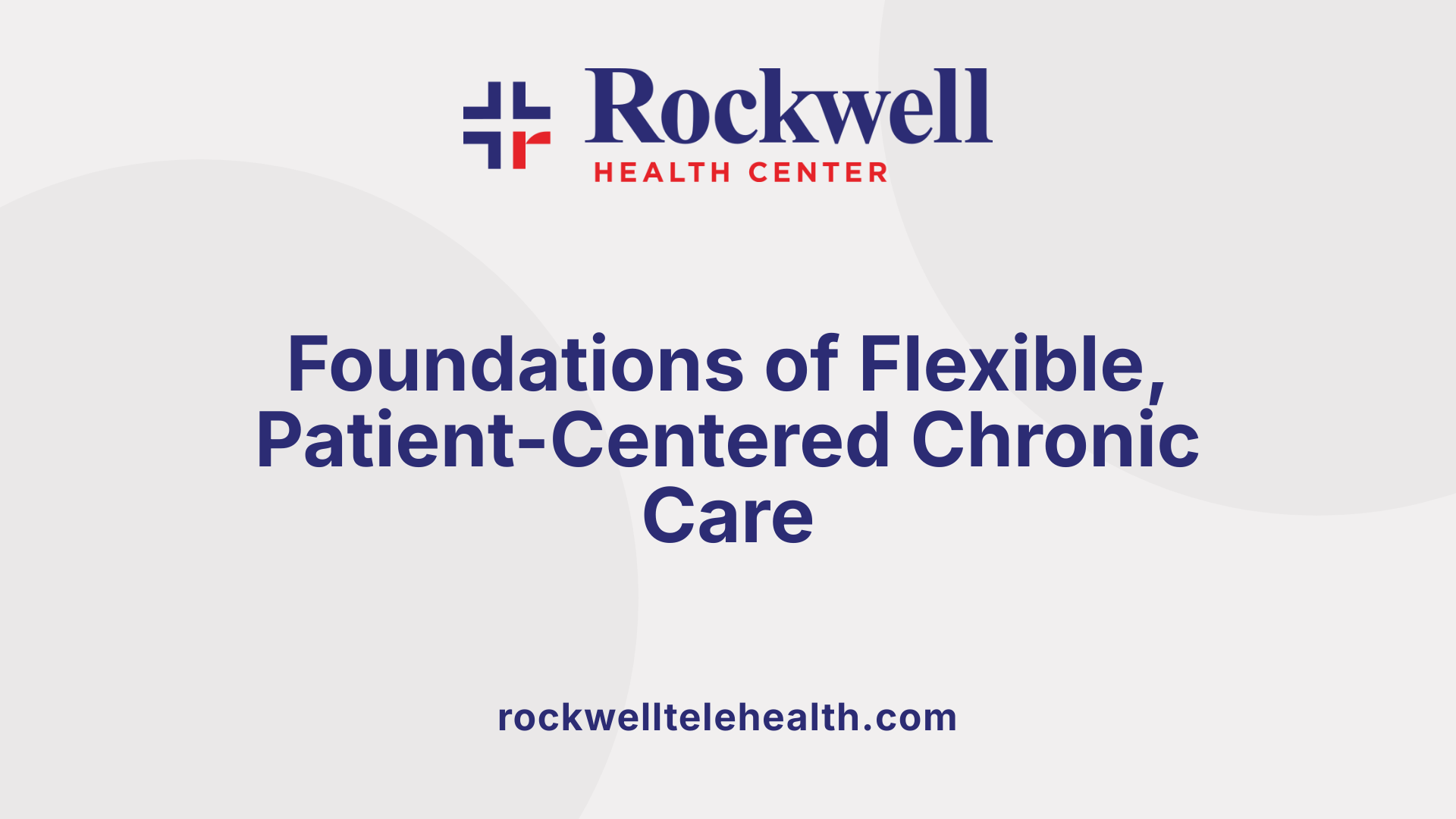
What frameworks, such as the Chronic Care Model, underpin adaptable chronic care management?
Several models serve as a foundation for creating flexible and effective chronic care systems. The most recognized is the Chronic Care Model (CCM), which emphasizes organized, proactive, patient-centered care. Beyond CCM, frameworks like the Patient-Centered Medical Home (PCMH) focus on coordinated primary care that is accessible and patient-driven.
The Wagner Model of Chronic Disease Care emphasizes the importance of self-management and care coordination within the healthcare team. The World Health Organization's Innovative Care for Chronic Conditions (ICCC) framework broadens this perspective to include community resources and health system reforms that support sustainable, scalable interventions.
Additionally, the RE-AIM framework provides a scientific approach to implementation, focusing on Reach, Effectiveness, Adoption, Implementation, and Maintenance of care strategies. These models collectively promote integrated, team-based approaches that leverage health information technology, foster organizational culture change, and prioritize patient engagement.
They also inspire adaptations like goal-oriented care, which aligns medical interventions with individual life goals, ensuring that care remains flexible and responsive.
Incorporating these frameworks enables healthcare systems to design care programs that are both person-centered and adaptable to diverse settings and populations. This comprehensive foundation promotes continuous improvement in managing chronic conditions.
How do these models support the evolution of personalized care?
These frameworks advance personalized care by emphasizing the integration of community resources, technology, and evidence-based practices.
They support adjustments in care plans based on individual health profiles, preferences, and goals. Moreover, they foster organizational cultures that prioritize patient engagement and shared decision-making.
By promoting the use of health information technology, these models facilitate real-time data sharing and remote monitoring, which allow for timely modifications tailored to each patient's evolving needs.
Overall, the emphasis on collaboration, patient involvement, and system-wide adaptation helps create more responsive and personalized chronic disease management strategies, ultimately leading to better health outcomes and higher patient satisfaction.
Technological Innovations Enhancing Adaptability
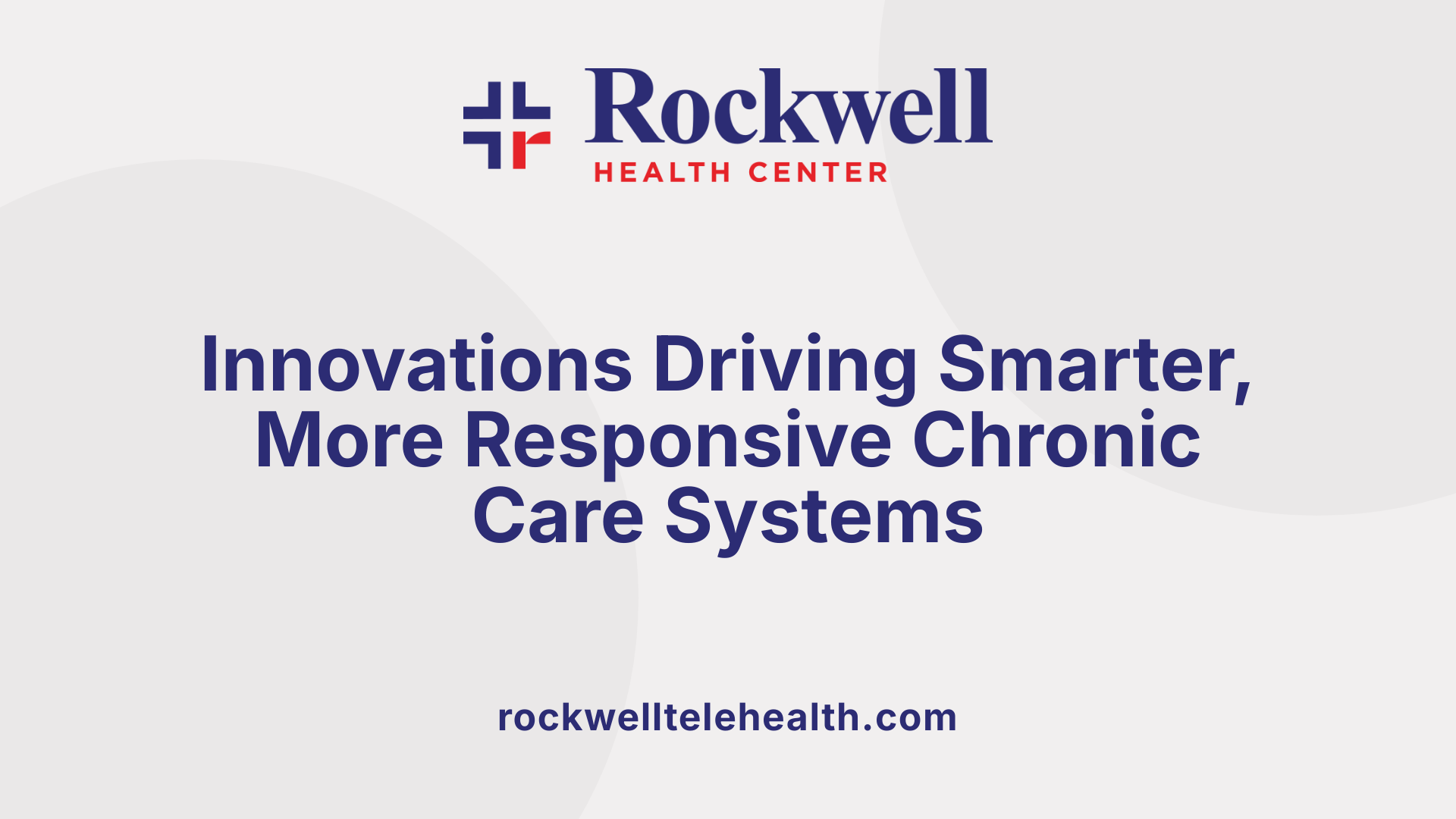 Remote patient monitoring (RPM) and telehealth services have revolutionized how chronic care is delivered by providing continuous, real-time data and making healthcare accessible regardless of location. RPM allows healthcare providers to track vital signs, symptoms, and medication adherence remotely. This proactive approach helps catch issues early, reducing hospitalization risks and enabling swift adjustments to care plans.
Remote patient monitoring (RPM) and telehealth services have revolutionized how chronic care is delivered by providing continuous, real-time data and making healthcare accessible regardless of location. RPM allows healthcare providers to track vital signs, symptoms, and medication adherence remotely. This proactive approach helps catch issues early, reducing hospitalization risks and enabling swift adjustments to care plans.
Telehealth expands access to healthcare services, especially for patients with mobility challenges or those living in remote areas. Patients can consult with providers via video or phone, ensuring ongoing support without the need for frequent in-person visits.
Electronic health records (EHR) systems facilitate seamless information sharing among different healthcare providers. They support coordinated care by providing comprehensive, up-to-date patient data, which is vital for adapting treatment strategies quickly as health conditions change.
Mobile health apps empower patients with tools to manage their conditions actively. These apps often include medication reminders, symptom trackers, educational resources, and direct messaging with care teams, increasing engagement and adherence.
Data analytics and artificial intelligence (AI) further enhance the capacity of chronic care systems to adapt. By analyzing large datasets, AI can identify emerging health trends, predict potential complications, and suggest personalized interventions, making care more responsive to individual needs.
What role do health technologies play in supporting flexible and responsive chronic care systems? They enable real-time monitoring, improve access through telehealth, streamline information sharing, empower self-management, and support personalized treatment via advanced data analysis. Collectively, these innovations allow healthcare to adapt swiftly to patients' changing health statuses.
Which technological breakthroughs have most driven improvements in healthcare systems? Notably, remote monitoring tools, telehealth, integrated electronic records, and AI-driven analytics each contribute significantly to more efficient, personalized, and proactive management of chronic conditions.
Evolution of Programs and System Redesigns
 Chronic care programs are shifting from solely focusing on managing specific diseases to adopting a holistic approach that emphasizes overall well-being. This transition involves integrating social and environmental factors—like housing, nutrition, and transportation—into care models. By addressing social determinants of health, programs aim to enhance health outcomes and reduce disparities.
Chronic care programs are shifting from solely focusing on managing specific diseases to adopting a holistic approach that emphasizes overall well-being. This transition involves integrating social and environmental factors—like housing, nutrition, and transportation—into care models. By addressing social determinants of health, programs aim to enhance health outcomes and reduce disparities.
Patient engagement strategies have become more sophisticated, utilizing digital tools such as smartphone apps, remote monitoring devices, and telehealth services. These technologies enable real-time data collection, proactive interventions, and better communication between patients and providers. Enhanced data sharing through electronic health records fosters coordinated care, especially in managing complex, multimorbid cases.
Policy adjustments, including changes in reimbursement models, support this evolution. For example, Medicare’s CCM reimbursement codes incentivize proactive, team-based, and patient-centered care. These financial incentives encourage healthcare providers to embrace innovative care delivery methods that prioritize patient goals and long-term health.
Innovative models like home-based care, virtual clinics, and community partnerships are transforming traditional healthcare delivery. These models not only improve access but also align care with patients' preferences, especially for older adults and those in rural areas.
To ensure ongoing improvement, healthcare systems utilize continuous quality improvement processes. This includes analyzing health data, engaging patients and providers for feedback, and adjusting policies accordingly. Leadership that fosters innovation and a culture of learning further supports adaptive system modifications.
Below is a summary of these strategies:
| Strategy | Approach | Impact |
|---|---|---|
| Social determinants | Integrating community resources into care plans | Addresses root causes and reduces health disparities |
| Technology use | Employing telehealth, remote monitoring, and EHRs | Promotes proactive care and seamless data sharing |
| Policy and reimbursement | Incentivizing team-based and patient-centered care | Facilitates sustainable care improvements |
| Continuous feedback | Using data analytics and stakeholder input for updates | Ensures care models evolve with patient needs |
By continuously refining these elements, healthcare systems aim to deliver more personalized, efficient, and outcome-focused care, ultimately improving quality of life for individuals with chronic conditions.
Benefits of Personalized, Continuous Support
 Offering personalized and ongoing support for individuals managing chronic conditions provides significant health and well-being advantages. When care is tailored to a person's unique health profile and daily life goals, it leads to better health results. Early detection of problems and proactive management strategies help prevent complications, reducing the need for emergency interventions.
Offering personalized and ongoing support for individuals managing chronic conditions provides significant health and well-being advantages. When care is tailored to a person's unique health profile and daily life goals, it leads to better health results. Early detection of problems and proactive management strategies help prevent complications, reducing the need for emergency interventions.
This approach also boosts patient satisfaction by addressing emotional, mental, and physical aspects of health. Patients often feel more secure and supported, which encourages greater engagement in their care plans. Personalized support promotes independence and quality of life, often enabling individuals to stay active and socially connected.
Effective continuous care fosters better self-management behaviors, including medication adherence and lifestyle changes. Patients who receive regular, attentive support are more likely to follow treatment recommendations consistently, leading to improved health outcomes. It also helps decrease hospitalizations and overall healthcare costs by avoiding preventable admissions.
Furthermore, proactive support involves home safety evaluations and caregiver assistance, reducing stress on families and preventing burnout. Regular communication and resource connection create a safety net that adapts as patient needs evolve, emphasizing prevention and wellness.
In summary, providing personalized, continuous support transforms healthcare into a proactive, patient-centered process that significantly enhances health, satisfaction, and cost efficiency.
Role of Goal-Oriented and Patient-Centered Approaches

How do goal-oriented and patient-centered approaches enhance personalized chronic disease management?
Incorporating goal-oriented and patient-centered strategies transforms how chronic illnesses are managed. Instead of focusing solely on controlling disease biomarkers or meeting standard guidelines, these approaches prioritize what is most important to each individual patient. This shift involves understanding personal values, life goals, and daily circumstances, which helps healthcare providers design care plans that are more meaningful and relevant.
By fostering a collaborative relationship, patients actively participate in decision-making—co-creating treatment goals and plans. This partnership ensures that interventions are tailored to their unique needs, especially useful for those managing multiple conditions simultaneously.
Operationalizing this approach within models like the CCM means integrating personal goals into all aspects of care—ranging from education, medication management, to lifestyle modifications. The result is not only better health outcomes but also increased satisfaction and adherence.
Patients who see their care as aligned with their personal life ambitions and values are more motivated to follow through with recommended treatments, leading to more consistent engagement and sustained health improvements.
What impact do goal and value alignment have on patient engagement?
When healthcare efforts align with personal goals and core values, patients tend to become more involved and motivated in managing their health. This relevance makes the treatment feel more meaningful, fostering trust and open communication with providers.
Such alignment encourages patients to adhere more diligently to medication schedules, lifestyle changes, and self-monitoring routines. Over time, this leads to improved health outcomes, greater satisfaction with care, and a sense of empowerment—crucial components in managing chronic conditions effectively.
In essence, focusing on what matters most to individuals enhances their engagement, making chronic disease management a true partnership rather than merely clinical oversight.
| Aspect | Effect | Supporting Detail |
|---|---|---|
| Personalization | Increases adherence | Tailored care plans reflect individual goals. |
| Motivation | Enhances engagement | Patients feel understood and involved. |
| Satisfaction | Improves care experience | Relevance of care boosts trust. |
| Outcomes | Better health results | Consistent self-management improves control. |
| Multimorbidity | Supports complex needs | Multiple conditions are managed with holistic plans. |
This person-centered framework underscores the importance of aligning healthcare strategies with individual life priorities, ultimately delivering more effective and compassionate chronic care.
Adapting for the Future of Chronic Care
As healthcare systems continue to evolve, the integration of adaptable care models rooted in person-centered, goal-oriented principles marks a significant step forward. Leveraging advanced frameworks, innovative technologies, and community partnerships ensures that chronic care programs are responsive to the complex, changing needs of individuals. This patient-centric approach not only improves outcomes but also enhances patient experience, satisfaction, and long-term health sustainability, setting the foundation for a more resilient, equitable healthcare landscape.
References
- Operationalizing the Chronic Care Model with Goal ...
- 6 Key Components of an Effective Chronic Care ...
- The Chronic Care Model
- Chronic Disease Self-Management Program
- Chronic Condition Management for Seniors - Hopscotch
- Changing The Chronic Care System To Meet People's Needs
- Chronic Care Management: The Ultimate Guide







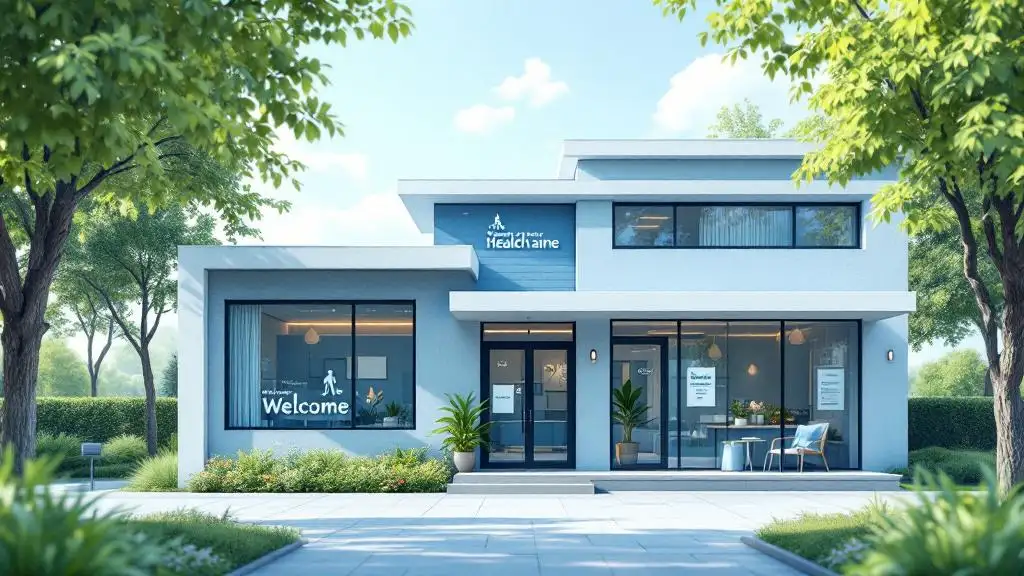











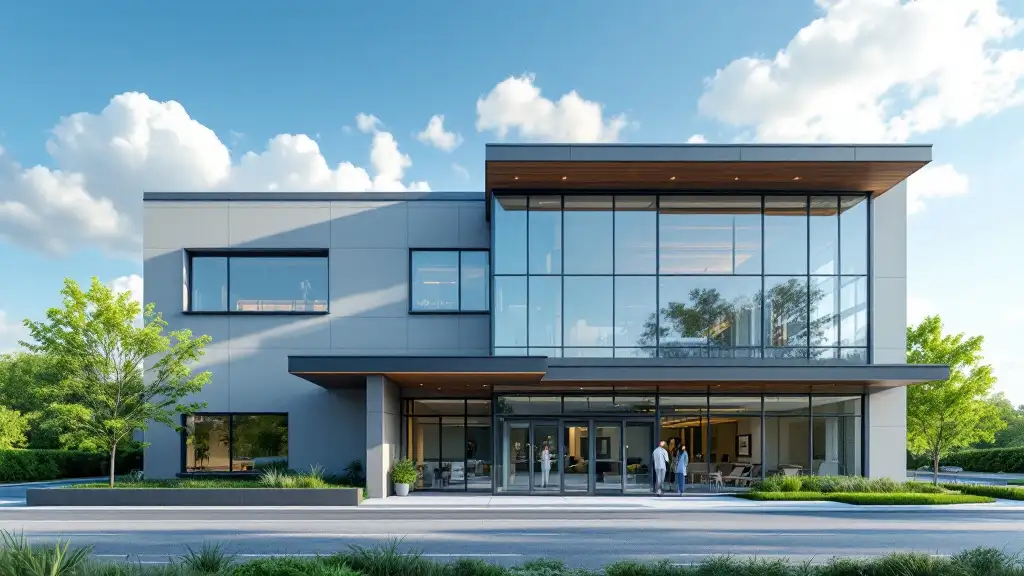


































































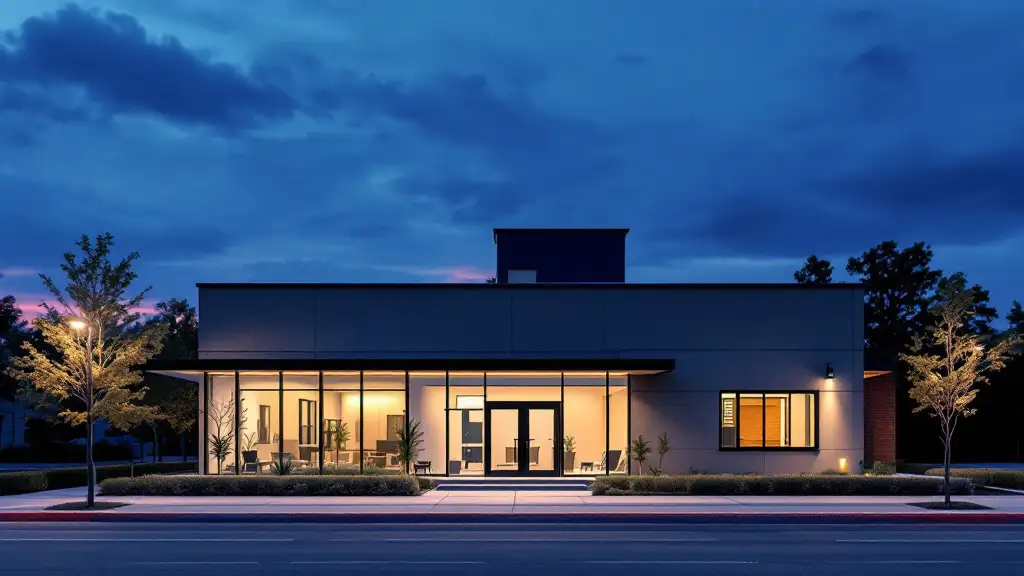

.png)